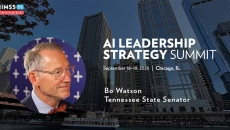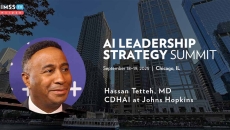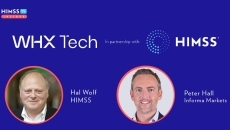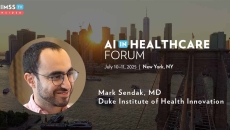Population and Public Health
AI systems demand massive energy infrastructure, and Tennessee State Sen. Bo Watson says his state has allocated $60 million to develop alternative energy sources to help meet AI's power needs.
Dr. Meera Mani, general partner of Town Hall Ventures, discusses how the firm's Fund IV will use investments to help companies bring new technologies to underserved communities.
Martin Gaynor, professor emeritus at Carnegie Mellon University, discusses a study on obstetric care changes after mergers with larger systems that may be farther away but can offer more specialized care.
Dr. Hassan Tetteh of the Johns Hopkins Center for Digital Health and AI says that agentic AI has the potential to surpass human intelligence and change the way we work, but can also enable personalized, more patient-driven healthcare.
HIMSS President and CEO Hal Wolf and Informa Markets' Peter Hall discuss how strategies shared at the inaugural WHX Tech can help global providers tackle common digital transformation, access and equity challenges.
The alliance will result in alerts being sent to high-risk populations with the aim of preventing injuries caused by adverse weather conditions.
At an event in Washington, D.C., on Monday, DiMe released a thesis with what it says are four impact areas that are vital to pursue in digital medicine in the next five years.
Also, Vuno has sold its bone age AI as part of ongoing restructuring.
Dr. Matthew Thompson, Telescope Health cofounder and CEO, says delivering virtual preventive care can reduce ER visits and hospital readmissions, save taxpayers money and improve community health outcomes.
While smaller hospitals and FQHCs often lack the infrastructure to deploy AI, Duke's Dr. Mark Sendak says the Health AI Partnership is working to help them access AI tools that can drive efficiency and reduce administrative burden.








